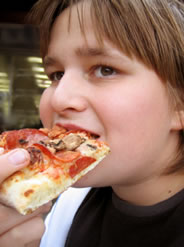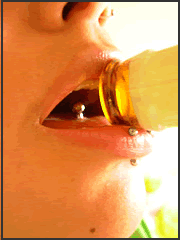Sleeplessness Rising in a Falling Economy
“Where care lodges, sleep will never lie,” says Shakespeare in Romeo and Juliet.
Today, millions of Americans can attest to his insight. According to a poll from the National Sleep Foundation (NSF), 27 percent of Americans say personal finances, the economy or unemployment concerns are keeping them awake at night.
“Stress and anxiety can definitely impact sleep,” says Sunil Mathews, M.D., medical director of the Sleep Center at Baylor Medical Center at Irving. “And unfortunately, insomnia can turn into a vicious cycle.” [continue reading…]

© istockphoto
Researchers from the Institute of Prevention Research at the Keck School of Medicine of the University of Southern California (USC) found in a recent study that overweight youth were twice as likely to have overweight friends.
“Although this link between obesity and social networks was expected, it was surprising how strong the peer effect is and how early in life it starts,” says lead author Thomas Valente, Ph.D., professor of preventive medicine at the Keck School of Medicine.
The study appears in the August issue of the Journal of Adolescent Health, available online July 20 [continue reading…]

© iStock
Teens who drink heavily are more likely than their peers to have behavioural and attention problems and suffer from anxiety and depression, a team led by researchers from the
Norwegian University of Science and Technology (NTNU) has reported.
The team’s study was based on a survey of nearly 9000 Norwegian teenagers aged 13-19 years and was published in the online journal Child and Adolescent Psychiatry and Mental Health. Fully 80 per cent of the teenagers said they had tried alcohol, while 29 per cent said they had been drunk more than 10 times in their lives.
Boys who drank frequently were more likely to report conduct problems, while girls who drank frequently reported attention and conduct problems, along with depression and anxiety. [continue reading…]
How well do you know yourself? It’s a question many of us struggle with, as we try to figure out how close we are to who we actually want to be.
In a new report in Perspectives on Psychological Science, a journal of the Association for Psychological Science, psychologist Timothy D. Wilson from the University of Virginia describes theories behind self-knowledge (that is, how people form beliefs about themselves), cites challenges psychologists encounter while studying it, and offers ways we can get to know ourselves a little better. [continue reading…]


